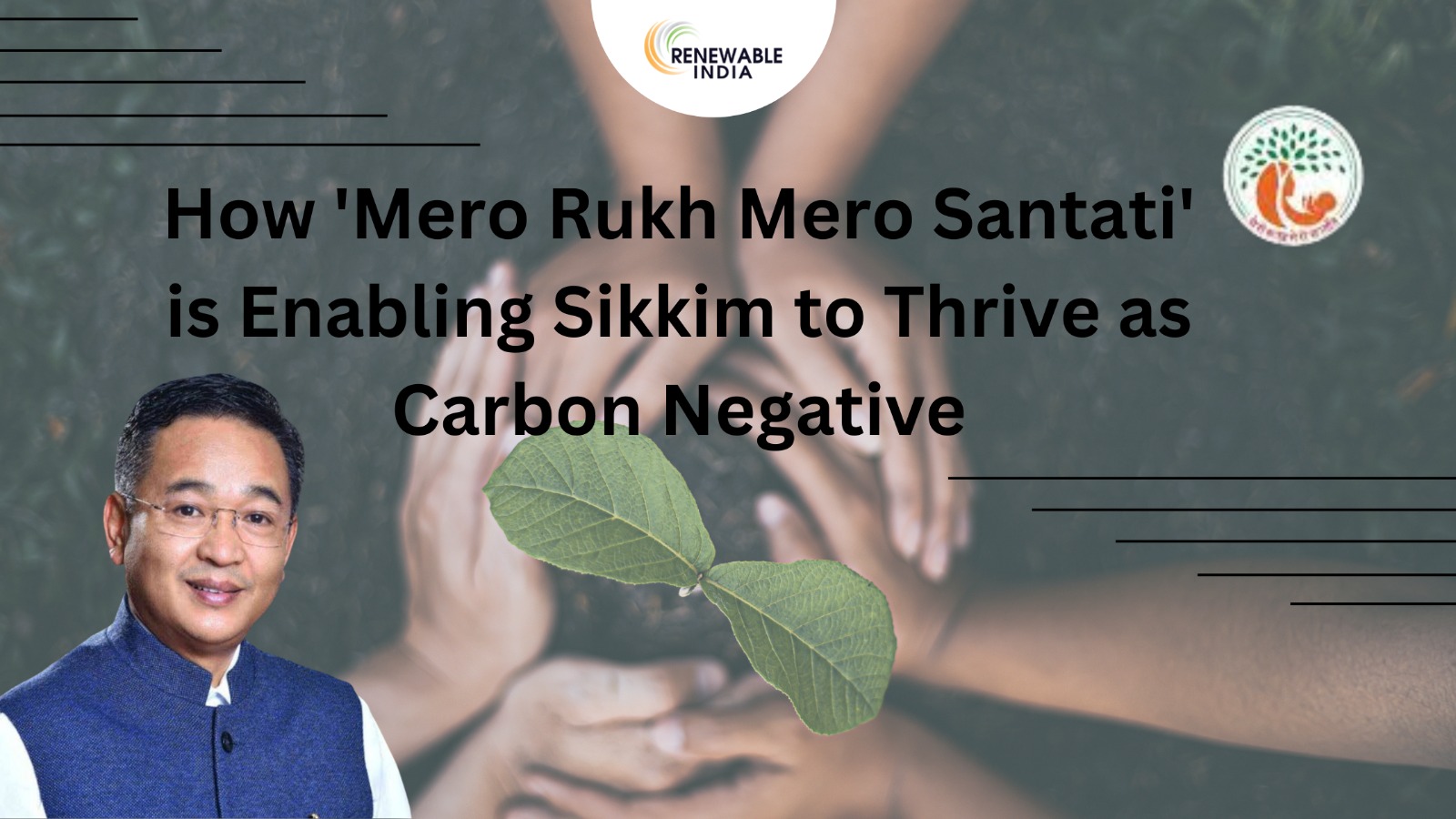
In the midst of international attempts to address climate change, the gorgeous Indian state of Sikkim in the northeast has become a leader in environmental sustainability. Sikkim has already achieved carbon neutrality.
The state is adamantly working towards a carbon-negative position, going beyond India’s goal of Net Zero by 2070. Pioneering initiatives, including “Mero Rukh Mero Santati” (My Tree My Child) in the vanguard, are driving this green revolution. By planting 100 trees for each new baby born in the state, this creative effort aims to deepen the connection between society and nature.
Sikkim has demonstrated admirable dedication to protecting its natural nature and lowering carbon emissions. Under the direction of Prime Minister Narendra Modi’s vision for a sustainable future, the state government set out to designate Sikkim as a “Green State.” Sikkim is now carbon neutral, but the forest minister there, Karma Loday Bhutia, proudly stated that Sikkim wants to go even further and become carbon negative.
Mero Rukh Mero Santati” is a ground-breaking programme created to foster the symbiotic link between people and nature, and it is at the core of Sikkim’s ground-breaking initiatives. This innovative programme attempts to commemorate each child’s birth by growing 100 trees in their name. The state hopes to accomplish this by developing an ecosystem that allows both children and trees to coexist in peace.
The fundamental goal of “Mero Rukh Mero Santati” is to rekindle the intimate bond between people and nature. The Sikkim government hopes that by implementing this programme, its residents will develop a sense of responsibility and environmental awareness from the very beginning of their lives. The state promotes a deep-rooted love of nature, where people and the environment coexist in harmony, by planting trees for every newborn.
The active participation of numerous stakeholders is essential to “Mero Rukh Mero Santati”‘s success. Parents are enrolled in the programme by ASHA employees, Anganwadi employees, gram panchayats, urban local bodies, and department staff. This all-encompassing strategy makes certain that each kid born in Sikkim joins the effort to develop a greener and healthier environment.
The “Mero Rukh Mero Santati” programme in Sikkim is notable for its openness and adaptability. It offers options for broad engagement by giving parents the freedom to plant trees on private property, public land, or even surrounding forests. This strategy guarantees that everyone can participate in the programme, regardless of their socioeconomic status, making it a true community endeavour.
More than 5000 people have registered for “Mero Rukh Mero Santati” since its official debut on Environment Day. This figure is impressive given Sikkim’s low population density. The inhabitants’ fervent response demonstrates their dedication to environmental preservation and sustainable practices. As the programme gets traction, it promises to plant even more trees, advancing Sikkim’s pursuit of carbon neutrality.
The world is inspired by Sikkim’s persistent commitment to becoming a carbon-negative state. With creative initiatives like “Mero Rukh Mero Santati,” the state demonstrates its commitment to fostering the relationship between people and the natural world. Sikkim is fostering a future where both its children and the environment thrive by planting 100 trees for every newborn. Sikkim sets the way for a sustainable and environmentally friendly tomorrow as the path to carbon negative progresses. Let’s work together to create a healthier, more peaceful world by drawing motivation from this amazing project.
Leafy Organic Straws – A Sustainable Revolution for a Greener World
Leave a Reply